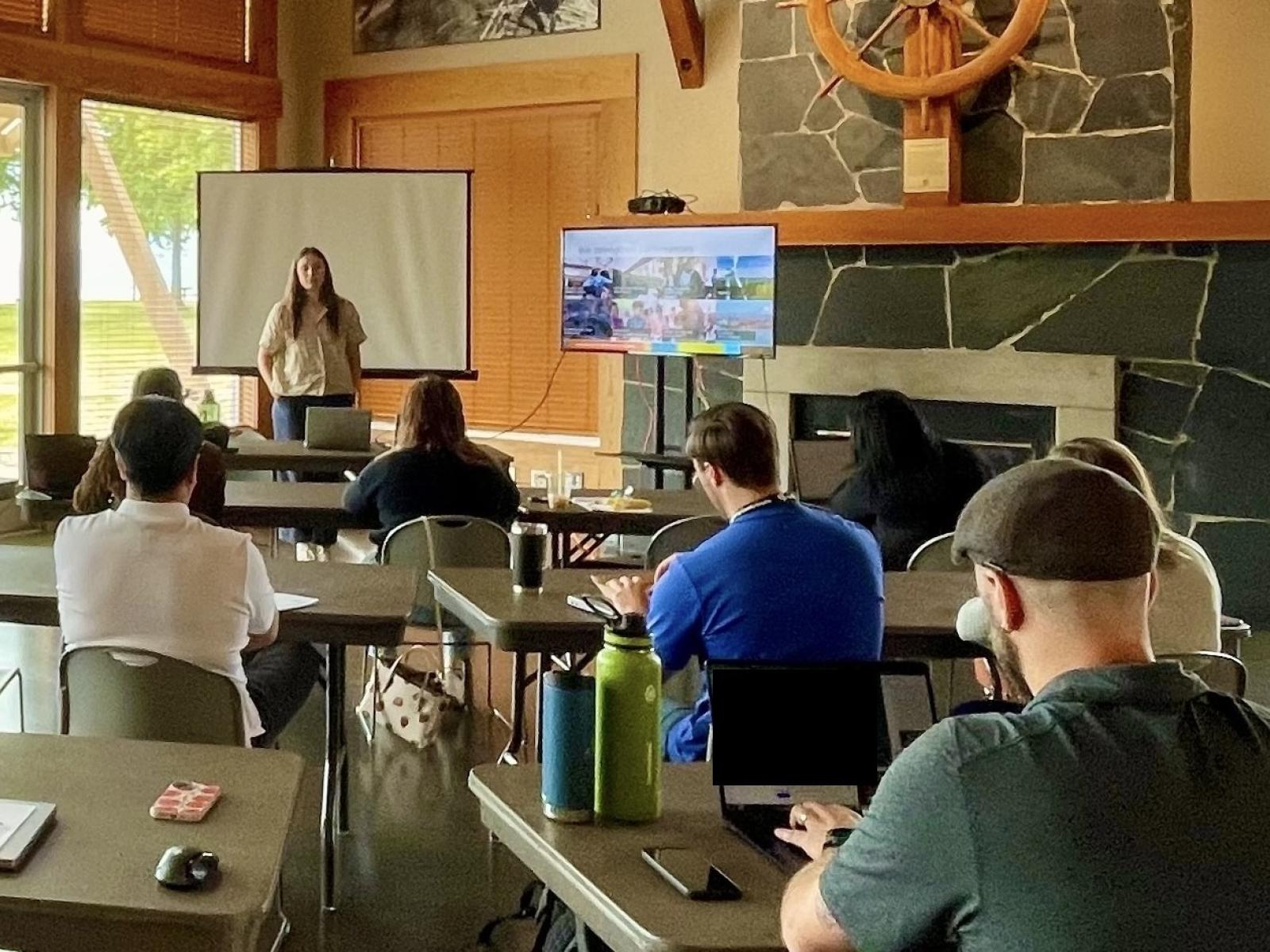Workshop Helps Washington Utilities Plan a Stronger, Smarter Grid
PNNL and WA Commerce Support Utilities in Efforts to Strengthen Infrastructure and Boost Grid Resilience

Karyn Boenker, project manager at Pacific Northwest National Laboratory, speaking at the Grid Resilience Workshop in Bellingham, WA.
(Photograph courtesy of Karyn Boenker | Pacific Northwest National Laboratory)
Utilities across Washington took steps to strengthen the grid during recent resilience planning workshops hosted by Pacific Northwest National Laboratory (PNNL) and the Washington State Department of Commerce. This statewide series is designed to help utilities develop stronger, more competitive grid resilience applications for the Washington Grid Resilience Grant Program. The first event was held at the PNNL campus, while the second took place in Bellingham, Washington.
These events bring together more than two dozen representatives from municipal utilities, public utility districts, rural electric cooperatives, and tribal utility operators—particularly those with smaller service areas and limited resources. Attendees participate in strategy sessions, technology demonstrations, and peer discussions focused on identifying grid vulnerabilities, defining resilience priorities, and aligning with federal and state policy requirements.
“Our goal is to make resilience planning feel more accessible, not overwhelming,” said Karyn Boenker, a grid modernization expert at PNNL. “Workshops like this give utilities practical tools and confidence to build stronger, more competitive grant applications. Getting together in-person also allows for networking across territories and within regions that face similar threats.”
Strategic resilience projects
Workshops kick off with networking and a facilitated discussion focused on defining grid resilience and identifying common challenges across the themes of preparedness, response, and recovery.
Presentations are a mix of regulatory and policy insights with real-world examples. PNNL experts share national perspectives on grid resilience, including research highlights and strategies for connecting science to investment and policy decisions. Attendees also review Washington-specific requirements and definitions, discussing how resilience planning differs from traditional grid reliability efforts. While each section is grounded in research and data, group discussions and collaboration play a key role in translating concepts into actionable planning strategies.
Working sessions introduce tools like PNNL’s EGRASS platform—a decision support tool that helps utilities map vulnerabilities, assess risks, and identify high-value resilience investments. Group discussions encourage collaboration across neighboring territories and give participants the opportunity to develop preliminary strategies they can refine into grant proposals.
“Wildfire is understandably top of mind for nearly every utility in the room—regardless of location,” Boenker said. “PNNL leads in this space, and is committed to helping utilities address these complex, high-priority challenges.”
“We’re committed to helping Washington utilities turn good ideas into real, funded projects that strengthen their communities,” said Jennifer Grove, energy division assistant director at the Department of Commerce. “These workshops are a great example of how collaboration and knowledge sharing can make that happen.”
The workshop’s collaborative approach demonstrates the shared commitment between utilities, researchers, and state leaders to deliver meaningful, locally driven resilience improvements.
What’s next
Designed to help utilities strengthen planning efforts and prepare for investment opportunities, PNNL’s Grid Resilience Workshops continue to gain visibility and support. The team is heading out on the road and will be taking the series to additional states.
Published: November 17, 2025